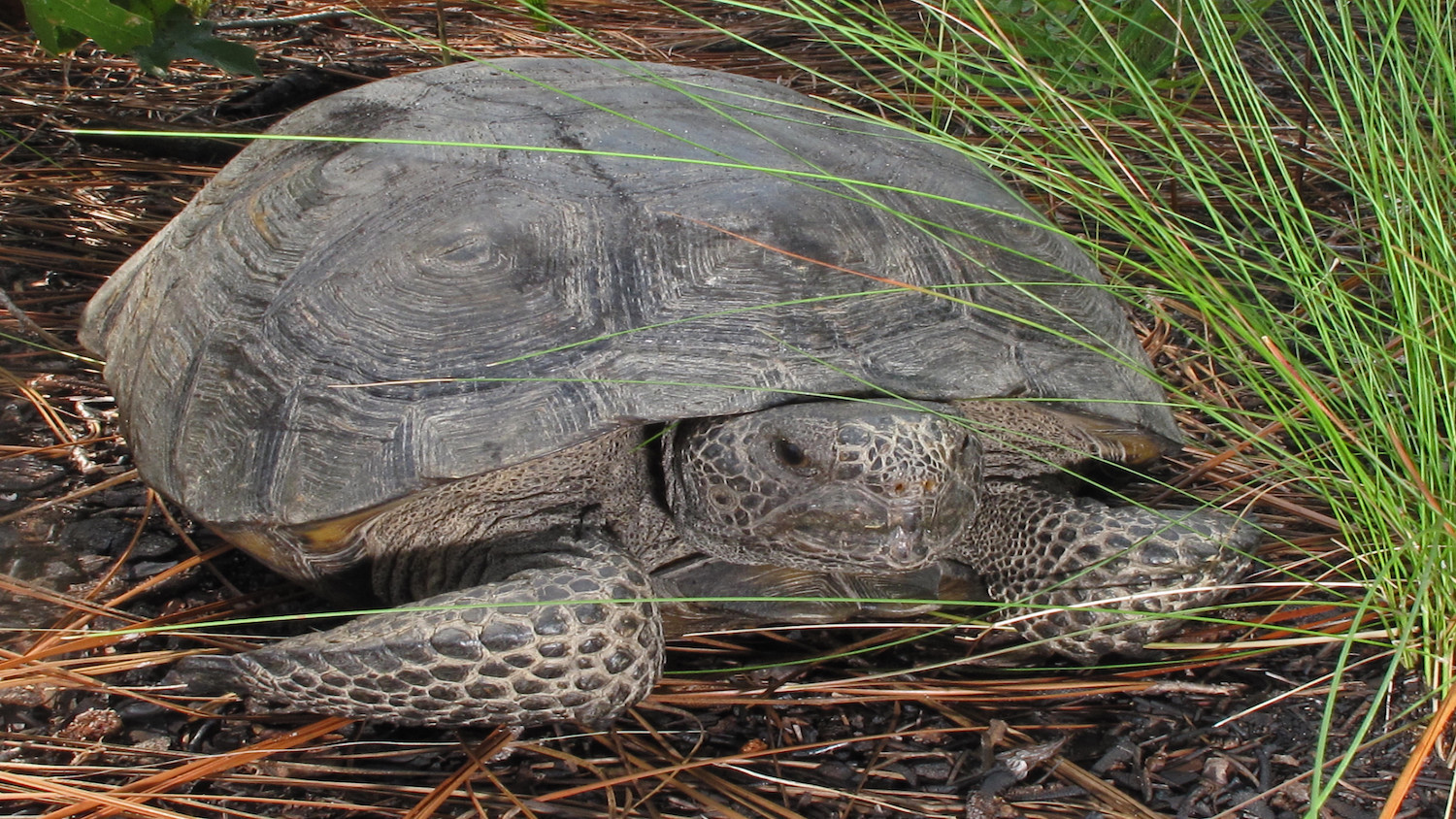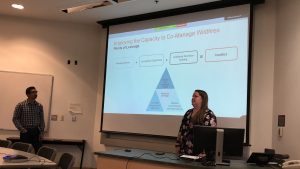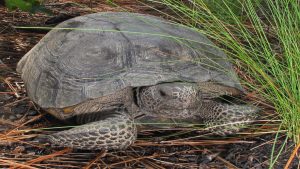February 2020 Newsletter

February 2020 Newsletter
Welcome to the Southeast Climate Adaptation Science Center’s February 2020 Newsletter.
For news and upcoming events related to the Southeast Climate Adaptation Science Center, subscribe to our monthly newsletter.

Southeast Climate Adaptation Science Center News

The first Global Change Seminar of the semester addressed topics of Fire: Connecting Science, Management, and Policy. View a summary and recording of the lively Feb. 6 seminar.
The next Global Change Seminar, Faith and Reasoning in Climate Change Views, will be held on March 5, 3:30pm in 101 DCL and via Zoom. Get details and connection link here.
Dr. William Gould gave a fantastic presentation on the U.S. Caribbean chapter of the NCA4 on February 11. View resources from the webinar: Guide to Understanding the chapter and a recording of the presentation.
The final presentation in the NCA4 webinar series, on Chapter 15: Tribes and Indigenous Peoples, presented by Rachael Novak (Bureau of Indian Affairs) and Casey Thornbrugh (United South and Eastern Tribes), will be held on March 25 at 12pm ET. Register here.
2016-2017 Global Change Fellow, Lindsay Maudlin, SE CASC PI, Karen McNeal, SE CASC USGS Deputy Director, Ryan Boyles, 2015-2016 Global Change Fellow Rachel Atkins, are co-authors on journal article, Website Usability Differences between Males and Females: An Eye-tracking Evaluation of a Climate Decision Support System, which demonstrated gender differences in how users interacted with web-based climate information. Learn more.
New publication deriving from SE CASC project, Evaluating The Use of Models for Projecting Future Water Flow in the Southeast: Hydrologic modeling for flow-ecology science in the Southeastern United States and Puerto Rico by Caldwell, PV, JG Kennen, EF Hain (2012-13 Global Change Fellow), SAC Nelson, G Sun, SG McNulty provides water resource managers and stakeholders with an informed pathway for developing the capacity to link streamflow and ecological response and an understanding of some of the limitations associated with these type of modeling efforts. More information.
SE CASC Researcher, Dominique David-Chavez was featured in Science Friday: How Native American Communities Are Addressing Climate Change.
2018-2019 Global Change Fellow, Andre Taylor, developed a new podcast titled, Speaking Culturally, highlighting how different cultures preserve their heritage. Episode 1: Preserving Gullah Geechee Cultural Heritage in the Face of Climate Change and Sea Level Rise
Spring 2018 Global Change Fellow, Riley Gallagher was awarded the Richard L. Noble Best Student Paper Award at the NC Chapter of the American Fisheries Society meeting.
Researcher Spotlights: Faith Johnson, Katie McQuillan, and Rachel Sussman
Faculty Affiliate Pubs and Publicity
Faculty Affiliates, Tom Kwak and Alonso Ramirez, Caribbean fish love catastrophic hurricanes.
Faculty Affiliate, Elsa Youngsteadt, The Impact of Prescribed Burning on Native Bee Communities (Hymenoptera: Apoidea: Anthophila) in Longleaf Pine Savannas in the North Carolina Sandhills. Also, Prescribed Burns Benefit Bees
Faculty Affiliate, Kathie Dello, featured on the NPR podcast, The State of Things from North Carolina. Listen to 2019 Sets The NC Record For The Warmest Year here.
Latest from Conservation Corridor: Creating marine protected areas with mobile boundaries.
Resources
FEATURED RESOURCE

This Story Map developed by the Natural Resources Conservation Service narrates information about several animal species closely associated with the southeastern longleaf pine ecosystem, two of which are also the focus of SE CASC project, Providing Science for the Conservation of Animals in the Southeastern Longleaf Pine Ecosystem. View the Story Map.
Climate Science Research in the United States and U.S. Territories. This report, released by the National Council for Science and the Environment assesses how public universities contribute to national, regional, and local knowledge of climate-related science. View the report.
Living Shorelines Resource Catalog. The Green Infrastructure Work Group of the Climate and Resilience Community of Practice has compiled a catalog of available living shoreline resources to help stakeholders across the Gulf find information on design and construction, cost, and permitting. Learn more.
NOAA Sea Level Rise Viewer. This web mapping tool now includes a visualization of marsh migration with sea level rise inundation as well as a tutorial to guide exploration for specific location and time and climate scenarios. Learn more.
SciStarter. This database connects residents with citizen science projects that they can participate in within their community. Learn more.
Covering Climate Now. This international journalism initiative founded by The Nation and Columbia Journalism Review aims to encourage domestic and foreign news organizations to produce more media coverage about climate. Learn more.
Bat Acoustic Monitoring Portal. This website holds an archive of bat monitoring datasets derived from acoustic monitoring projects that allows users to upload, visualize, share, and aggregate data. Learn more.
Ecosystem Service Assessments at Three National Wildlife Refuges: Methods, Results, and Lessons. In this National Ecosystem Services Partnership webinar, Emily Pindilli, describes methods, results, and lessons learned from these projects and the ecosystem services frameworks used in the USGS LandCarbon program’s ecosystem service assessments at various National Wildlife Refuges. Learn more.
Society of Environmental Journalists Reporter’s Toolbox. With three decades of experience in the field of change communication, Susan Joy Hassol has curated an extensive list of resources for journalists to enhance the effectiveness of their reporting. Learn more.
Sea-Level Report Cards. These report cards created by the Virginia Institute of Marine Science project sea-level height relative to land in the year 2050 for 32 U.S. coastal localities. Learn more.
In the Media
Miami Is the “Most Vulnerable” Coastal City Worldwide. Scientific American
UNICEF: Hurricanes Are Scattering Caribbean Families. St. Croix Source
Spring Leaves Appearing Earlier Than Normal. Coastal Review Online
Caught Off Guard: The Southeast Struggles with Climate Change. Inside Climate News
A Brief History of Sea Level Rise in North Carolina. NC Sea Grant

Notable Publications
Actionable knowledge and the art of engagement. The co-production model of knowledge production allows researchers and knowledge-users to meaningfully interact to co-create knowledge that is actionable in decision-making. This has gained popularity over the more traditional linear model of knowledge building in the interest of making knowledge more relevant to environmental sustainability and evaluating societal impacts. In practice, co-production is not limited to a single approach and instead, allows for a diverse process that can include various forms of engaged research. Given the diversity of this process, authors provide a framework for evaluating processes of actionable knowledge that accounts for context specificity and the need for equitable, meaningful interactions that produce knowledge that fits specific decision contexts. Link to article.
Increasing Rates of Carbon Burial in Southwest Florida Coastal Wetlands. The rate of organic carbon burial in mangroves and marshes has increased in recent years. Researchers quantified the organic carbon burial rates in both mangrove and marsh ecosystems in southwest Florida to determine if the cause of this increase was representing a real acceleration or whether the increases could be attributed to post-depositional degradation of older material or to artifacts of the methods used to measure soil accumulation. The combination of evidence collected from all seven sample cores which showed increases in organic carbon burial rates over the past 120 years suggests that this increase represents a net acceleration, most likely driven by sea-level rise. Their analysis indicates that coastal wetlands are more responsive to sea-level rise than previously believed. Link to article.
Recent responses to climate change reveal the drivers of species extinction and survival. It is well understood that climate change may pose a major threat to global biodiversity within the next century. However, it remains unclear which changes in climate lead to species extinctions and how many species are likely to be lost. In this study, researchers used data from 538 plant and animal species distributed globally to identify specific changes in climate that are associated with widespread local extinctions that have already occurred. This allowed them to predict the extent of future biodiversity loss, as well as processes that may forestall extinction. Overall, it was found that 57–70% of the 538 species will not disperse quickly enough to avoid extinction. However, while most studies focus only on dispersal as means of avoiding extinction, authors suggest that niche shifts appear to be far more important for species survival, indicating that only 16–30% of these 538 species may go extinct by 2070. Link to article.
Potential impacts of land use/cover and climate changes on ecologically relevant flows. This study explored the sensitivity of ecologically relevant flows to individual and combined impacts of climate and land use/cover (LULC). 38 key flow parameters which are known to have significant impacts on aquatic flora and fauna were examined showing a result of increased summer temperature and decreased fall precipitation in the watershed. Climate change is expected to increase maximum monthly stream flows, especially in June-September, affecting habitat availability for the organisms which reside there. When climate change was combined with LULC change, analysis showed more frequent drought and flood events, potentially having a negative impact on many fish species. Link to article.
Modeling migration patterns in the USA under sea level rise. In this study, researchers created a framework to model climate change driven migration patterns using historical models of human migration. This framework operates under the idea that climate driven migration will not follow historical trends of “business as usual” migration. A sea level rise model was coupled with a data-driven model of historical human migration and future population projections to distinguish a climate-driven migration model. The results of this joint framework suggest that inland areas immediately adjacent to the coast and urban areas in the southeastern US may see the largest effects from SLR-driven migration. Link to article.

Tribal News
The Bureau of Indian Affairs, Trust Services, Tribal Resilience Program is accepting applications for the Program to Support Tribal Resilience Grants and Ocean and Coastal Management and Planning Grants for Federally Recognized Tribes. Apply by March 2. More information.
ITEP is offering Tribal Strategic Planning/ETEP and Partnerships & Community Outreach courses which will be available from February 13 – March 20, 2020.
USET has introduced their Climate Change Webpage which holds current updates on information regarding climate science events, funding opportunities, best practices, and highlights from across the USET region.
The Native Youth Community Adaptation and Leadership Congress applications are now being accepted. Apply here by March 31. More information.
The Sixteenth Annual Southeast Indian Studies Conference will be held on March 19-20, 2020 at the Museum of the Southeast American Indian. More information.
The USET Tribal Climate Resilience Camp will be hosted by the Penobscot Indian Nation, and held at the Schoodic Institute in Winter Harbor, ME from July 12-17. Learn more.
ITEP is hosting the first National Tribal & Indigenous Climate Conference in St. Paul, Minnesota from Aug. 31 – Sept. 4, 2020. Proposals are now being accepted here. Learn more.
The 2020 National Tribal Leadership Climate Change Summit will be held from October 12-14 in Seattle, WA. More information.
News of Interest: Cherokee Nation to preserve culturally important seeds in Arctic vault. The Guardian

Regional Partner News
NOAA National Marine Sanctuaries: NOAA launches Mission: Iconic Reefs to save Florida Keys coral reefs.
Southeast Regional Climate Center is launching a Southeast Climate Monthly Webinar, beginning on March 10.
NC Sea Grant: NC Sea Grant Announces 2020–2022 Core Research Projects.
U.S. Forest Service: Hurricane Recovery for Forest and Conservation Nurseries.
Southeast Conservation Adaptation Strategy: New short videos on Piedmont prairies ready to share.

Webinars
Feb. 27 | 12pm – 1pm | Forest Adaptation Webinar Series: Climate Refugia
Feb. 27 | 2pm – 3pm | A Match Made in Heaven?– Integrating Climate Change into Hazard Mitigation Planning
Mar. 4 | 1pm – 2pm | Climate Adaptation Fund webinar
Mar. 5 | 3pm – 4pm | A coral of a different color: Genetic insights to the diversity and distribution of gorgonian octocorals in the US Gulf of Mexico
Mar. 19 | 1pm – 2pm | Forest Adaptation Webinar Series: Warming Winters
Mar. 25 | 12pm – 1pm | NCA4 Webinar Series Chapter 15: Tribes and Indigenous Peoples
Mar. 25 | 3pm – 4pm | Vulnerability and Adaptation Planning

Upcoming Events
Find more upcoming events in our calendar.
Feb. 26 | Masters of Our Own Destiny-North Carolina’s African American Farmers | Raleigh, NC
Feb. 27 | Natural Hazards Resilience Speakers Series: Dr. Michelle Dovil | Chapel Hill, NC
Feb. 27 | Connect Raleigh: Trees in the City of Oaks | Raleigh, NC
Mar. 5 – 6 | Stemming the Tide Symposium | Washington, DC
Mar. 5 | Natural Hazards Resilience Speakers Series: Brian Blanton, RENCI | Chapel Hill, NC
Mar. 12 | CDC Climate and Health Science Symposium | Atlanta, GA
Mar. 12 – 14 | 2020 Rivercane Gathering | Welling, OK
Mar. 28 | Citizen Science & Higher Education Symposium | JC Raulston Arboretum
Dec. 14 – 17 | A Community on Ecosystem Services | Bonita Springs, Florida.
At NC State
Mar. 5 | Global Change Seminar: Faith and Reasoning in Climate Change Views | 101 DCL
Mar. 4 | DSI RED Talk: Monitoring Global Land Change by Dr. Matthew Hansen | 2203 SAS Hall

Opportunities
Student Announcements
The National Academies of Science, Engineering, and Medicine are accepting applications for the Gulf Research Program Science Policy Fellowship. Apply here by March 4.
Applications are now being accepted for the NC Sea Grant – NC Space Grant Graduate Research Fellowship. Apply here by March 20.
SECOORA and the FACT Network are partnering to sponsor a graduate student to examine how temperature affects fish movement patterns in south Florida marine ecosystems. Apply here by April 8.
The Department of Energy is accepting applications for the Office of Science Graduate Student Research Program. Apply here by May 6.
The U.S. Fish and Wildlife Service has announced a variety of 2020 internships here.
The Marine Extension and Georgia Sea Grant have a range of summer internship opportunities available. Learn more.
The Department of Plant Biology at the University of Georgia is accepting applications for a M.S. Assistantship studying the wind resistance of southeastern pine species. Learn more.
Hiring Announcements
The Center for Marine Sciences & Technology in Morehead City, NC is hiring a temporary research technician. Apply here by Feb. 28.
The Coastal Research and Extension Center at Mississippi State University (MSU), located in Biloxi, MS, is seeking a full-time avian ecologist/data manager at the level of Research Program Manager. Apply here.
The Haddad Lab in Fort Bragg, NC is hiring four summer research field technicians. Apply here.
American Rivers is hiring a Science Program Director in their Washington, DC office. Apply here. Applications will be reviewed on a rolling basis.
Research Grants
Georgia Sea Grant is accepting applications for the NMFS-Sea Grant Fellowship Program in Population and Ecosystem Dynamics. Apply here by February 27.
The Integrated National Heat Health Information System is accepting applications for the 2020 Urban Heat Island mapping campaigns. Apply here by March 2.
The Network for Landscape Conservation has announced the 2020 funding round of the Landscape Conservation Catalyst Fund. A portion of this fund is reserved for Indigenous-led partnerships. Submit a pre-proposal here by March 13.
NOAA has announced $500,000 in funding to study Interventions to Increase the Resilience of Coral Reefs. Apply here by March 20.
National Geographic is accepting proposals for Equity and the Natural World funding. Apply here by April 2020.
- Categories:

